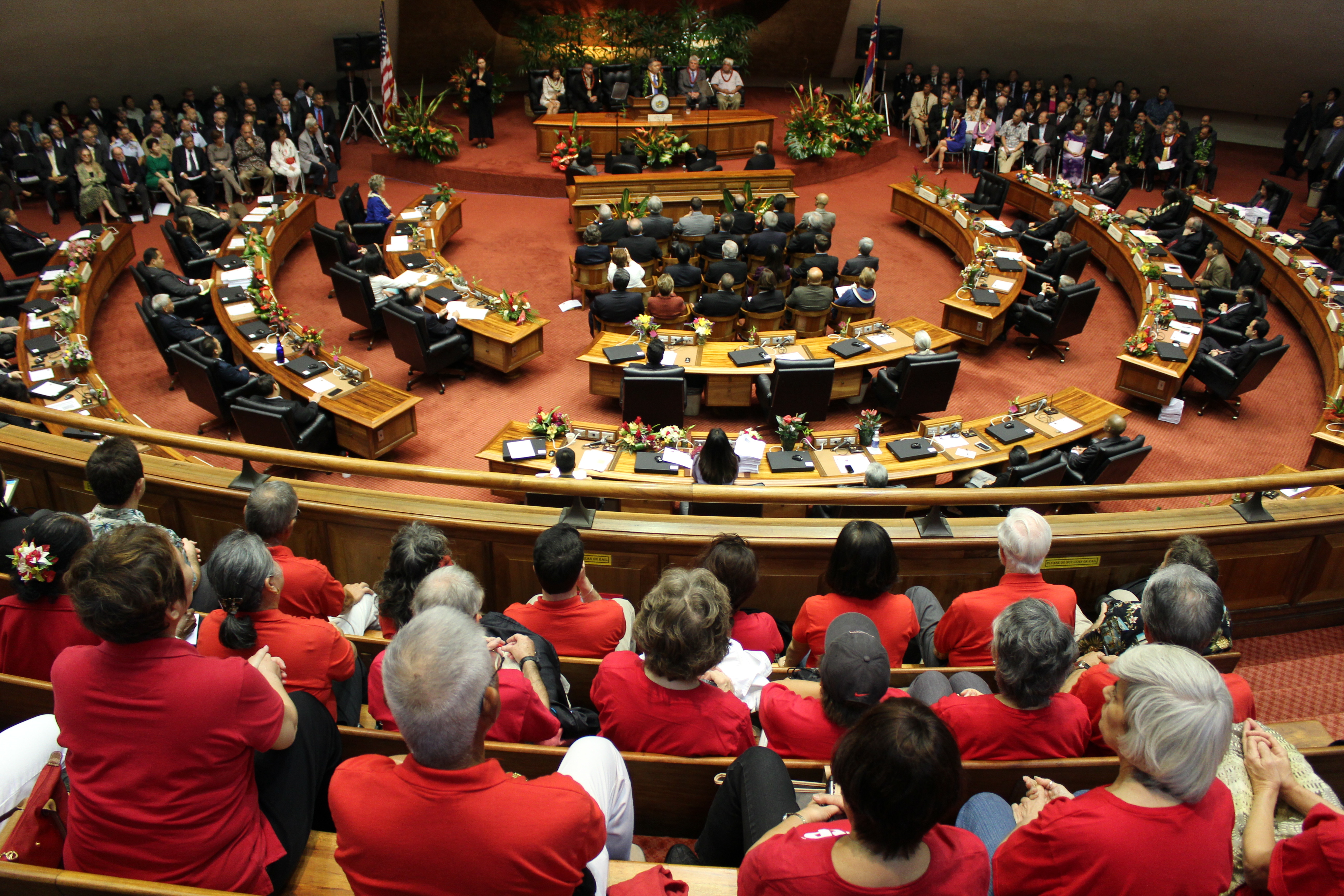AARP Hearing Center

Advocates for family caregivers kick off the 2016 legislative campaign Monday by attending Governor David Ige's State of the State Address and urging individual lawmakers to support the CARE Act. Heartened by strong public opinion and a growing awareness of the challenges facing unpaid caregivers and their families in Hawaii, many believe this is the year for legislation requiring hospitals to recognize the role caregivers play in helping family members transition safely from hospital to home.
The CARE Act - SB2208 - is part of the Kupuna Caucus legislative package (SB296 is the carryover bill from last session.) It is intended to help families whose loved ones are admitted to the hospital by 1) allowing patients to designate a caregiver on the medical record; 2) ensuring the caregiver is notified prior to a loved one’s discharge or transfer to another facility; 3) requiring hospitals to offer after-care instructions to the caregiver, prior to discharge, in the medical tasks needed to be performed when the patient goes home.
In his opening day remarks to the 2016 session, Speaker Joseph Souki expressed his support. “We need to help our kupuna by passing the bill introduced last session that will help family members care for their seniors after they come home from the hospital,” Souki said.
“Urgency for this bill stems from an understanding of the growing complexity of medical tasks unpaid caregivers are called upon to provide – often with little or no instruction or support,” said AARP Hawaii State Director Barbara Kim Stanton. The CARE Act is a common sense solution that calls for no state appropriation. Eighteen other states have passed similar legislation since 2014. We urge legislators to pass the bill in Hawaii without delay.”
A recent survey of Hawaii registered voters age 45-plus shows broad public support. More than nine in 10 respondents (92 percent) said hospitals should show family caregivers how to perform medical tasks that are needed at home when the patient is released. Twenty-one percent of residents said they are currently providing unpaid care to an adult loved one while 40 percent have done so in the past. Four in ten residents (42 percent) say it is at least somewhat likely they will provide care in the future to a loved one who is frail, elderly, ill, or who has a disability.
According to the survey, the typical family caregiver in Hawaii is a woman (65 percent), over 55 years old (74 percent), married (69 percent), and employed (42 percent). The average age of the person they care for is 80 years old. Both current and former caregivers have provided a range of care, with more than 74 percent assisting with complex care like medication management.































































